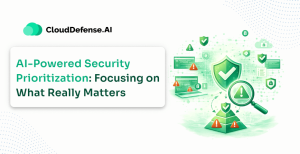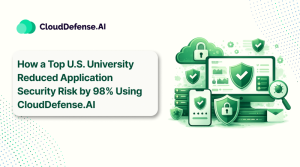What is a Virtual Private Cloud (VPC)
A Virtual Private Cloud, or VPC, is a secure, isolated cloud environment hosted within a public cloud infrastructure.
It allows users to run applications, store data, and perform various computing tasks as they would in a traditional private cloud, but with the resources provided by a public cloud provider.
VPCs offer the scalability and convenience of public cloud computing while ensuring data isolation and security akin to private cloud environments.
It provides users with a dedicated portion of the public cloud infrastructure, allowing them to define their own virtual network with customizable settings.
This setup resembles having a reserved table in a crowded restaurant – while the public cloud serves multiple customers, a VPC ensures exclusive access to resources for the designated user or organization.
What is a Public Cloud?
A public cloud is a shared cloud computing environment managed by third-party providers like AWS, Google Cloud, or Microsoft Azure. It delivers on-demand computing resources, including virtual machines, storage, applications, and databases, over the internet.
While the infrastructure is shared among multiple users, strict mechanisms ensure data isolation and security. This concept is quite similar to a restaurant kitchen where everyone shares the same resources, but each customer gets a personalized meal.
Public clouds follow a pay-as-you-go model, offering scalability, flexibility, and cost-efficiency. These services are ideal for businesses needing rapid deployment, global accessibility, and access to advanced tools without the overhead of managing physical infrastructure.
What is a Private Cloud?
A private cloud is a form of cloud computing characterized by its single-tenant nature, meaning it is dedicated exclusively to one organization. Unlike public clouds, which are shared among multiple users, a private cloud provides a proprietary architecture tailored to the specific needs of the organization.
It offers similar benefits to a public cloud, such as scalability and flexibility, but operates within a closed environment where resources are not shared with external parties.
A virtual private cloud is a specific type of private cloud hosted within a public cloud infrastructure, providing the organization with control and isolation similar to a traditional private cloud while using the scalability of the public cloud.
How a Virtual Private Cloud Works?
A VPC operates by using a public cloud provider’s infrastructure to create a secure and isolated virtual network for each customer. The provider ensures that data isolation is maintained both in transit and within their network. This is achieved through various security measures, such as allocating unique VLANs, providing subnets, and implementing VPNs.
VLANs are logical overlays that group devices sharing a physical LAN and segregate traffic for each group. In a VPC, VLANs divide the network for private use. Subnets, on the other hand, segment larger networks into smaller logical partitions, acting as private IP addresses inaccessible from the public internet.
VPNs add encryption and tunneling capabilities, securing data as it moves in and out of the VPC. Users have direct control over network components like IP addresses, subnets, gateways, and access control policies.
Within this isolated virtual network, users can deploy various cloud resources, including computing, storage, and networking resources. This setup allows organizations to harness the scalability and flexibility of the public cloud while maintaining the privacy and security of a private network.
Virtual Private Cloud Features
VPCs boast a range of features essential for modern cloud computing environments:
1. Availability: VPCs ensure high availability through redundancy and fault-tolerant architectures across multiple availability zones. This setup minimizes downtime and keeps applications accessible.
2. Connectivity Options: VPCs offer versatile connectivity options, allowing smooth integration with on-premises data centers, the internet, and other VPCs. This allows flexible networking setups customized to specific organizational needs.
3. IP Addressing: VPCs enable the creation of both IPv4 and IPv6 subnets, offering users the flexibility to assign public IP addresses to instances as needed. This feature supports efficient resource allocation and network management.
4. Scaling: VPC resources are highly scalable, allowing tenants to adjust the size of their virtual networks dynamically. Users can scale up or down as per demand, optimizing resource utilization and cost efficiency.
5. Security: VPCs provide logical isolation, ensuring that data and applications are segregated from other tenants within the cloud environment. This inherent isolation enhances security by minimizing the risk of unauthorized access and data breaches.
6. Agility: VPCs allow users with full control over network size and resource deployment, enabling rapid supply and scaling of resources to meet business requirements.
7. Affordability: VPCs offer cost-effective solutions by eliminating the need for upfront hardware investments and reducing operational overhead. Cloud providers handle maintenance and upkeep, leading to potential savings on hardware, labor, and associated resources.
8. Enhanced Availability: With redundant architectures and fault-tolerant designs, VPCs aim to minimize downtime and ensure continuous availability of applications and workloads, enhancing reliability and user experience.
How is a VPC Isolated Within a Public Cloud?
A VPC ensures the isolation of computing resources within the public cloud environment through several key technologies:
1. Subnets: These are reserved ranges of IP addresses within a network, dividing part of the network for private use. In a VPC, subnets consist of private IP addresses inaccessible via the public internet, enhancing security and privacy.
2. VLAN: A Virtual LAN partitions a network at layer 2 of the OSI model, separating computing devices without the use of the internet. Like subnets, VLANs can establish network segmentation, further enhancing isolation within the VPC environment.
3. VPN: Virtual Private Network technology uses encryption to establish a secure, private network over the public internet infrastructure. VPN traffic remains encrypted and inaccessible to unauthorized users, ensuring the confidentiality of data passing into and out of the VPC.
By using dedicated subnets and VLANs, a VPC customer establishes a private enclave within the public cloud, effectively restricting access to computing resources. VPN connections provide security by encrypting data transmissions, preventing unauthorized access from other users within the public cloud environment.
VPC providers may offer additional customization options such as NAT and BGP route configuration, enabling further integration and connectivity with external infrastructure. These features enhance the versatility and scalability of VPC deployments while maintaining strong isolation within the public cloud ecosystem.
What are the Advantages of Using a VPC Instead of a Private Cloud?
Using a VPC offers several advantages over traditional private cloud deployments. Firstly, its scalability enables customers to seamlessly add more computing resources as needed, leveraging the infrastructure provided by the public cloud provider.
1. Smooth Hybrid Cloud Deployment: VPCs help with easy hybrid cloud deployment, allowing organizations to connect their VPC to both public cloud services and on-premises infrastructure via VPN connections. This versatility enables efficient resource utilization and builds a more agile and adaptable IT environment
2. Improved Performance: VPCs typically deliver better performance compared to on-premises servers, as cloud-hosted websites and applications benefit from the robust infrastructure and optimized architectures of public cloud providers.
3. Robust Security: VPCs offer enhanced security measures, with public cloud providers dedicating significant resources to updating and maintaining infrastructure, particularly advantageous for small to mid-market businesses. However, larger enterprises or companies subject to strict data security regulations may find this security advantage less pronounced.
Conclusion
Virtual Private Clouds is a cost-effective solution for businesses transitioning to the cloud. With scalability customized to match needs and the ability to maintain security while promoting remote work, VPCs offer a strategic advantage to companies on the cloud. As organizations prioritize flexibility and cybersecurity, VPCs stand out as a powerful tool for building growth and efficiency in cloud-based infrastructure.







